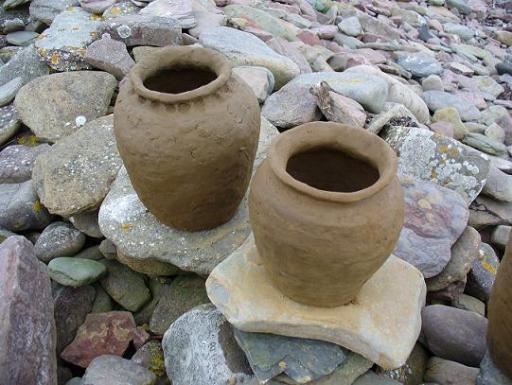
Recently Rated:
Stats
Blogs: 8
images: 37
Location: Ankara
Work interests:
Affiliation/website:
Preferred contact method: Reply to post in blog/forum/group
Preferred contact language(s):
Contact:
Favourite publications:
Work interests:
Affiliation/website:
Preferred contact method: Reply to post in blog/forum/group
Preferred contact language(s):
Contact:
Favourite publications:
Founding Member
Location: Ankara, Turkey
Work: British prehistory & archaeology, Anatolian prehistory & archaeology, anthropology, artifact illustration,ceramic petrology, ceramic ethnoarchaeology,PXRF Analysis, Japanese language and culture,experimental archaeology, prehistoric technologies,Iron Age Scotland, Jomon pottery, Jomon Archaeology (Japan).
Affiliations: Present: British Institute at Ankara, postdoctoral research fellow.
Biographical: Ba(Hons) Applied Arts: ceramic design -Edinburgh College of Art 2005 Msc Archaeology - University of Edinburgh 2006 PhD Archaeology - University of Edinburgh 2007 - 2012 National Museum of Scotland archaeology department volunteer 2006-2007 National Museum of Scotland archaeology department post excavation staff (outside contractor) 2009-2014 Member of : Scottish Potters Association British Institute at Ankara Society of Antiquaries of Scotland (elected fellow) Prehistoric Ceramics Research Group Association of Archaeological Illustrators and Surveyors (now exists as a branch of the Institute for Archaeologists)
Favourite Publications: Proceedings of the Society of Antiquaries of Scotland Proceedings of the Prehistoric Society Antiquity Journal of Anthropology (Ethnos) Cultural Anthropology Ceramic Review
Work: British prehistory & archaeology, Anatolian prehistory & archaeology, anthropology, artifact illustration,ceramic petrology, ceramic ethnoarchaeology,PXRF Analysis, Japanese language and culture,experimental archaeology, prehistoric technologies,Iron Age Scotland, Jomon pottery, Jomon Archaeology (Japan).
Affiliations: Present: British Institute at Ankara, postdoctoral research fellow.
Biographical: Ba(Hons) Applied Arts: ceramic design -Edinburgh College of Art 2005 Msc Archaeology - University of Edinburgh 2006 PhD Archaeology - University of Edinburgh 2007 - 2012 National Museum of Scotland archaeology department volunteer 2006-2007 National Museum of Scotland archaeology department post excavation staff (outside contractor) 2009-2014 Member of : Scottish Potters Association British Institute at Ankara Society of Antiquaries of Scotland (elected fellow) Prehistoric Ceramics Research Group Association of Archaeological Illustrators and Surveyors (now exists as a branch of the Institute for Archaeologists)
Favourite Publications: Proceedings of the Society of Antiquaries of Scotland Proceedings of the Prehistoric Society Antiquity Journal of Anthropology (Ethnos) Cultural Anthropology Ceramic Review
Using the blog feature: posting topics.
I'm not much of a blogger, though I do have a much-neglected account on a well known blogging service for some social networking and general banter. Anyhow, I have decided to use the blog posting feature here to post specific notes on a
few different research/study interests of mine, as opposed to
'dairy' 'diary' style posts.
My field of research is ceramic archaeology, and my ultimate career is likely to be as an artifact illuatrator and pottery analyst, so naturally those sorts of topics will take precedence.
Other likely posts will revolve around:
Japanese language acquisition; I've been learning for about 2 years now at evening class and in my spare time. I'm always looking for other people's experiences with this difficult and fascinating language, and any advice is welcome.
Japanese Jomon and Yayaoi archaeology.
Middle Eastern archaeology.
Akkadian language and varient of cunieform, which I hope to return to studying at some point.
Art and art history.
Archaeology of Britain; Mesolithic - Iron Age.
French Language acquisition, I used to be semi-fluent and then gradually forgot quite a lot of it with disuse. My aim is to eventually get it all back and add to it. I can still read French at a high level but on-the-spot speaking/ listening is now very difficult.
Rants about woes encountered while writing a thesis may also sporadically appear.
few different research/study interests of mine, as opposed to
'dairy' 'diary' style posts.
My field of research is ceramic archaeology, and my ultimate career is likely to be as an artifact illuatrator and pottery analyst, so naturally those sorts of topics will take precedence.
Other likely posts will revolve around:
Japanese language acquisition; I've been learning for about 2 years now at evening class and in my spare time. I'm always looking for other people's experiences with this difficult and fascinating language, and any advice is welcome.
Japanese Jomon and Yayaoi archaeology.
Middle Eastern archaeology.
Akkadian language and varient of cunieform, which I hope to return to studying at some point.
Art and art history.
Archaeology of Britain; Mesolithic - Iron Age.
French Language acquisition, I used to be semi-fluent and then gradually forgot quite a lot of it with disuse. My aim is to eventually get it all back and add to it. I can still read French at a high level but on-the-spot speaking/ listening is now very difficult.
Rants about woes encountered while writing a thesis may also sporadically appear.

Dairy...AHAHAHAHI often do this, commonly with teh and jsut....I'll proceed to correct it above!Thankfully my mother has offered to be my thesis proofer, she used to be a government proofreader,and now freelances - she NEVER misses a mistake. I'll find out at that point just how bad my comma placement and inverted letters are!
Dear Orlene,Let me milk your 'dairy' error (above) for all its worth... with our keyboards, inverting letter order and even word order seems be to as esay as spilling milk.Nothing to cyr about. Please delete this comment!Thanks for blogging.P.ps When I wrote my thesis, I paid a housemate who knew nothing about the subject to scan the text backwards, from end to front, page by page, in order to test for typologicals and badly written sentences. The backward approach allows a proofreader to focus on the small errors, and move quickly through a large text, without getting involved in the meaning of what is written.